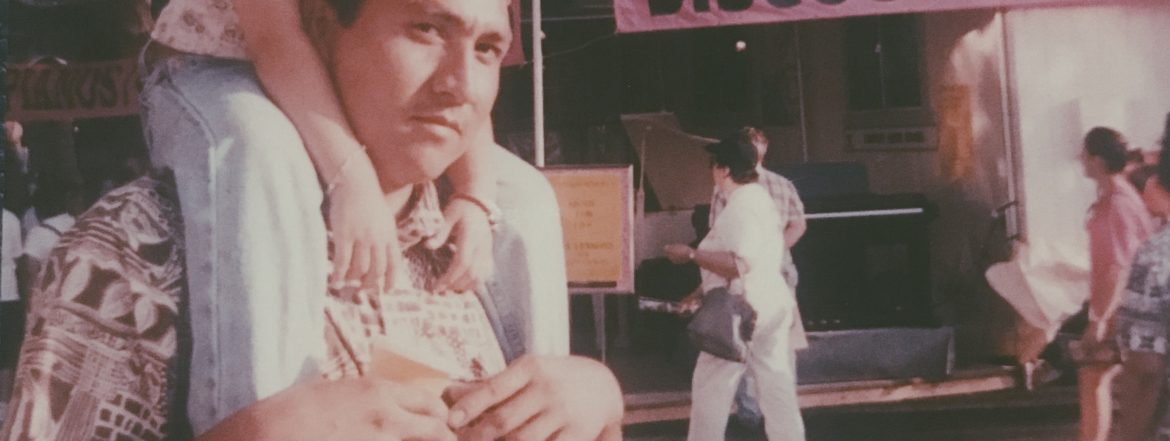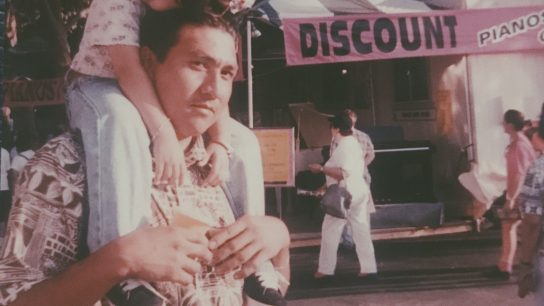Grief: Navigating Loss on Both Sides of the Border in the Midst of a Global Pandemic
by
Humanizing Acts is a series of essays and artworks that examines the impact of COVID-19 on the U.S.-Mexico borderlands. Each contributor writes about the ethical quandaries of conducting research at the border, living amidst the vulnerability and violence of pandemic times, and navigating complex interpersonal relationships and responsibilities. The scholars and artists share compassionate stories of people, including friends, loved ones, and neighbors alike, ultimately asking: How can academic research be a humanizing act?
A three-part poem series exploring the mourning and grief of a woman who has lost a father, a grandmother, and a close friend during a global pandemic.
It is my belief that grief is not the absence of love, but love adjusting to its new container. After our loved ones are gone, we continue, and in this continuing we find out just how hard it is to carry on. In the middle of grief, I have found flowers that whisper, I was deeply loved and I loved back. My father being my number one fan since day one. Grandma being sweet and strong. My friend Tonya, a warrior. All three, my ancestors now, speak to me as the sun rises and sets, as I search for their faces among the stars and in between busy moments. Each one has departed this world and yet they all remain imprinted in my heart and weaved into my daily life.
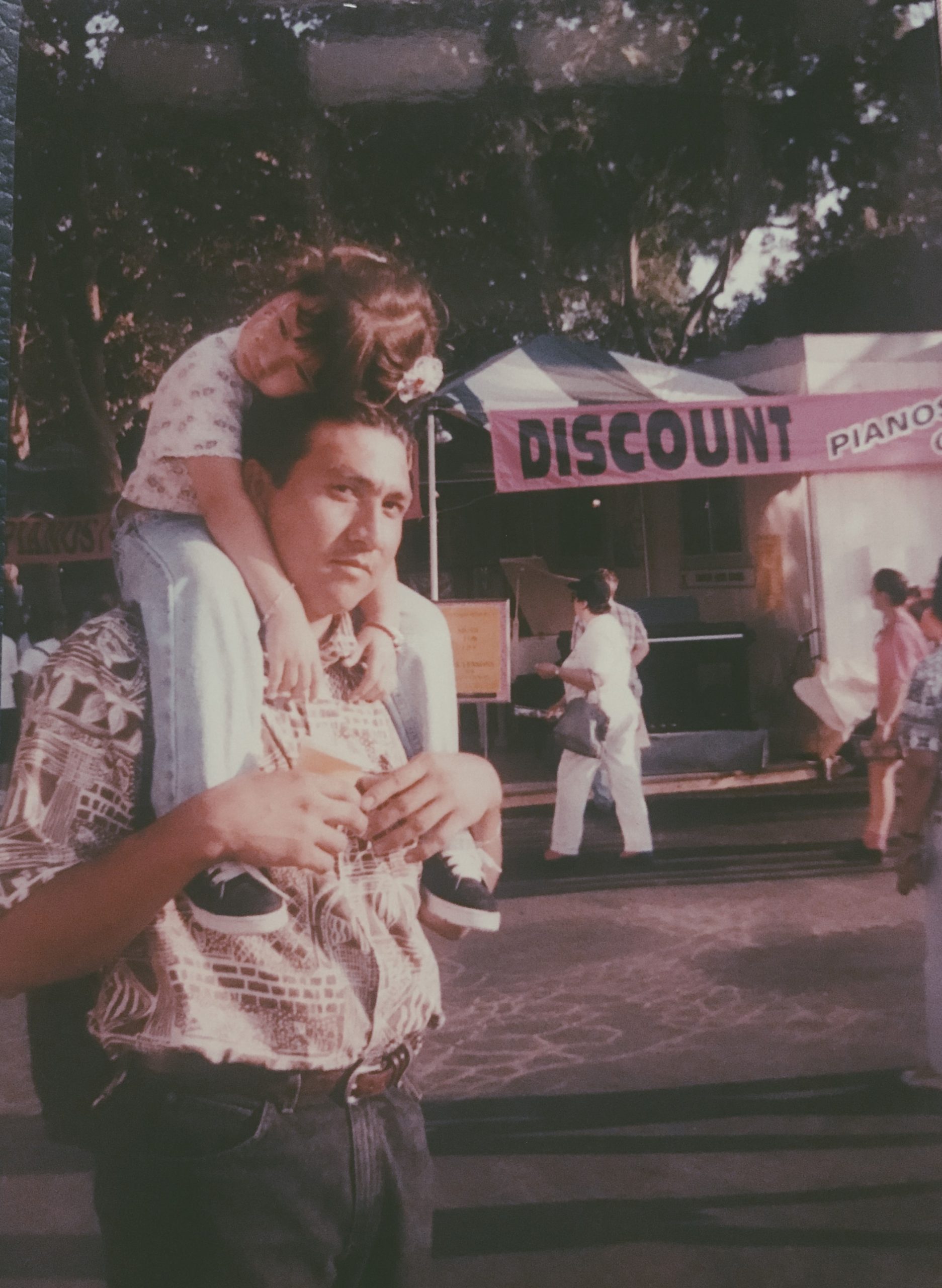
I. Padre e Hija
On Monday, we sat down for dinner, unknowingly our last
Two days later, the phone rang, “It’s a heart attack,”
the insensitive voice lied on the phone
We went to see you when all along we awaited your permanent return
Arriving to the hospital, the hovering crows raced to silence our voices,
but our lips were sealed tight with
rage confusion, and ‘el que diran’
Your hands covered in paint from the day’s work
Inside of me an anxious laughter burst out making me unable to cry at your bedside
Papa’s unmistakable laughter was replaced with a faint heartbeat and loud machines
We stood in front of the doctor mistaking medical terms for hope
Nothing we could do to get your hand to squeeze ours, again
Weeks later Padre Jorge presided over the ceremony with faith on your eternal rest
The event violated by circus-like spectators –who weaved lies into the stories they would carry to the other side of the border
Desperation filled the days between the phone call and the video of your ashes being poured into the ocean
The first birthdays without you, the first Christmas and soon, the first wedding of your second-born daughter
Every day we spend together now
marks a point in the map
of your
absence
To be a father and a daughter is a dance to,
words of affirmations,
reprimands
and good advice, “Tu echale ganas mija, tu puedes hacerlo todo”
A broken promise of “Nos vemos este fin de semana”
And holding onto the childhood vow that “nunca estaras sola, yo siempre estoy en tu corazon”
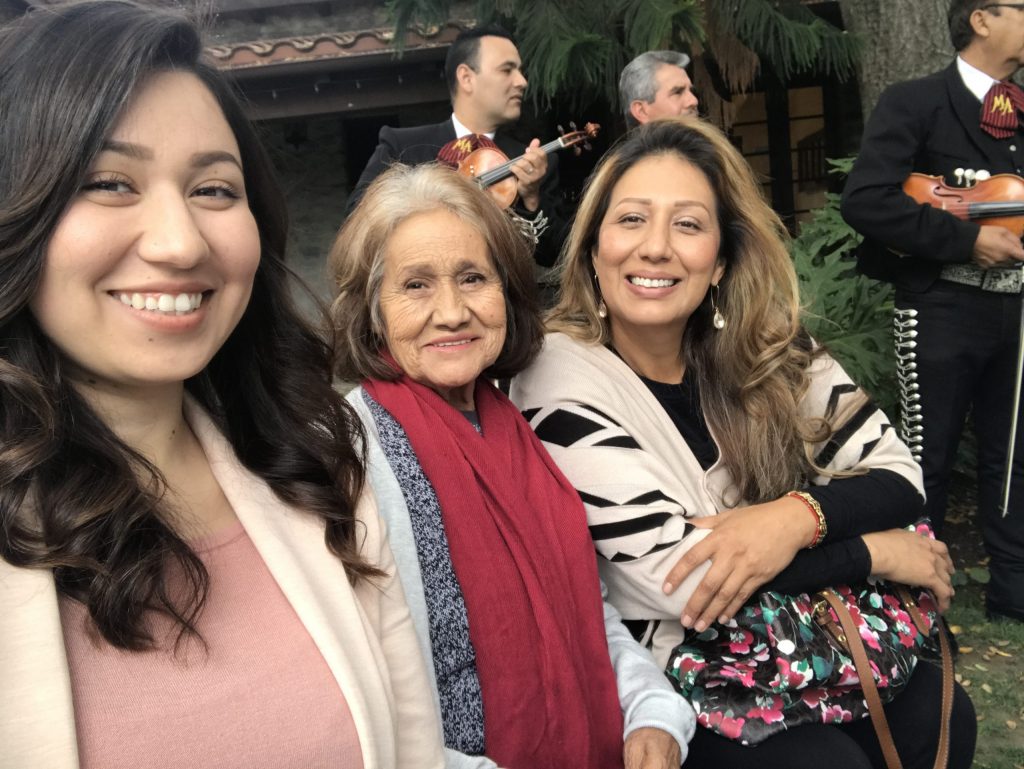
II. Abuelita
GRANDMA—not Abuela!
You would tell me, your first granddaughter
Grandma was proof you had given your firstborn daughter to the other side of the border and it
had produced sweet fruit—su primera nieta
By the fourth grandchild you allowed us to say Abuelita—but still not Abuela!
Never Abuela!
Grandma, gracias
Por quererme a tu manera
For breakfast at the small kitchen table on Mojonera street with hints of cigarette and Coca-Cola
Whispers of “eres mi favorita” spilling from your lips
Enjoying cotton candy en el Centro de Guadalajara
Gracias
If only Abuelita hadn’t died of a broken heart
For years I prayed the pain would leave you Grandma but you would remain
That the well of sorrow that consumed you would be replaced with forgiveness
With risas across the coffee table, just the two of us
I search for you here but you are somewhere I have never been before
Perderte is learning to navigate life in between forgiveness and what we can’t forget
Grandma, Perdoname
Because I didn’t always go for a walk with you
For the impatience of everyday life
Perdoname, because I have not visited you yet en Cristo Rey
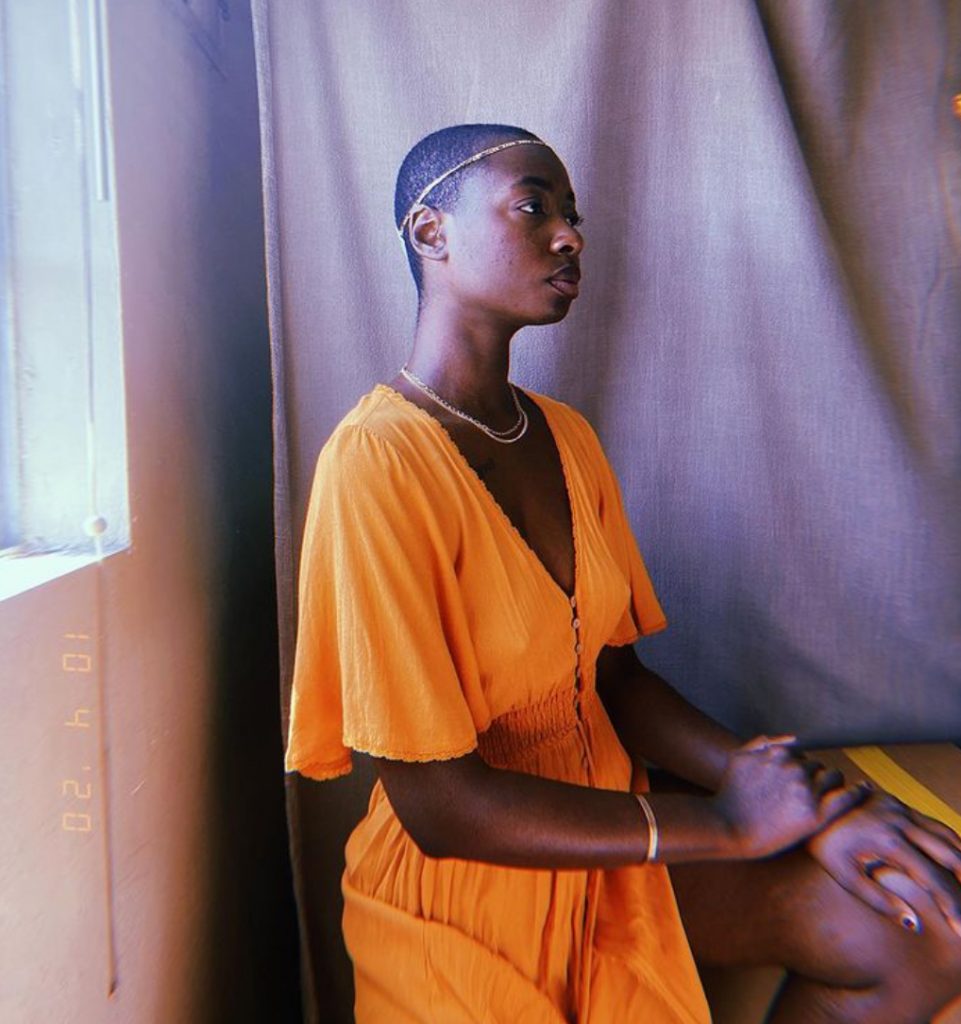
III. Amigas
I had just heard your voice a few days ago
Shock and despair pulled my body to the ground as I cursed at an empty room
You told me the last hospital visit was rough but you just had your hair done and we should meet up after the holidays
No more “hello my lovely friend” sung to me in voice messages
No more doing dishes together over the phone
No more overpriced salads and conversations of the future on Hollywood Blvd
Instead of new memories, wild thoughts bloomed into an erroneous illusion that going through every scenario, correcting every mistake and making every “what if” a reality, would bring you back
Your celebration of life, one of the most beautiful things I have witnessed
Everyone dressed to the 9’s, with stories of your vulnerability, your laughter, your black girl joy, your perseverance and your obsession with Tom Hardy and Bob’s Burgers
Laughter and wailing from everyone, because of how you loved us, because of how we love you, still
Each of us sharing about you while all I saw was extra kidneys
Kidneys that should’ve been for you
Hearing about lupus survivors on the TV and wondering why it wasn’t you
Guilt, disbelief and anger immediately present
Why couldn’t your body have rested and lived well –in this life?
Wanting to call you but entangled in this new knowing that you will not answer
Some days grief sits on top of me and I can’t breathe, others days it shows up in the evenings and brings with it shame for not remembering you enough that day
In the morning and at night the reality of your absence stings violently
This sadness morphing into anger is the only place I know to start healing
This essay is part of the series Humanizing Acts: Resisting the Historical Erasures of the COVID-19 Pandemic across the U.S.-Mexico Borderlands, funded by UCHRI’s Recasting the Humanities: Foundry Guest Editorship grant. Listen to the collaborative podcast, in which series contributors discuss the gifts of resisting the historical erasure of the COVID-19 pandemic with community and research.
